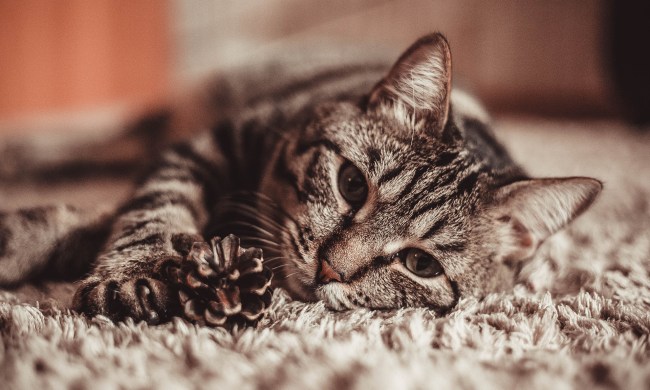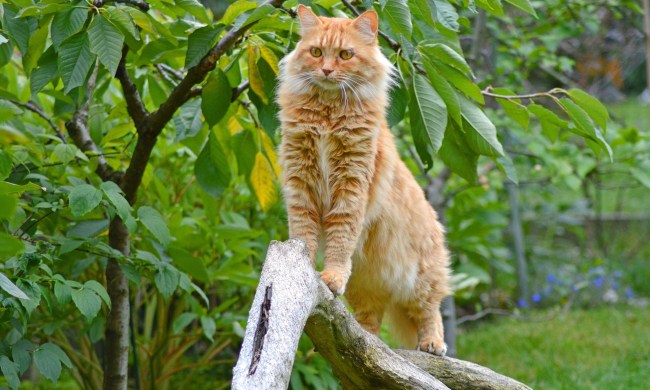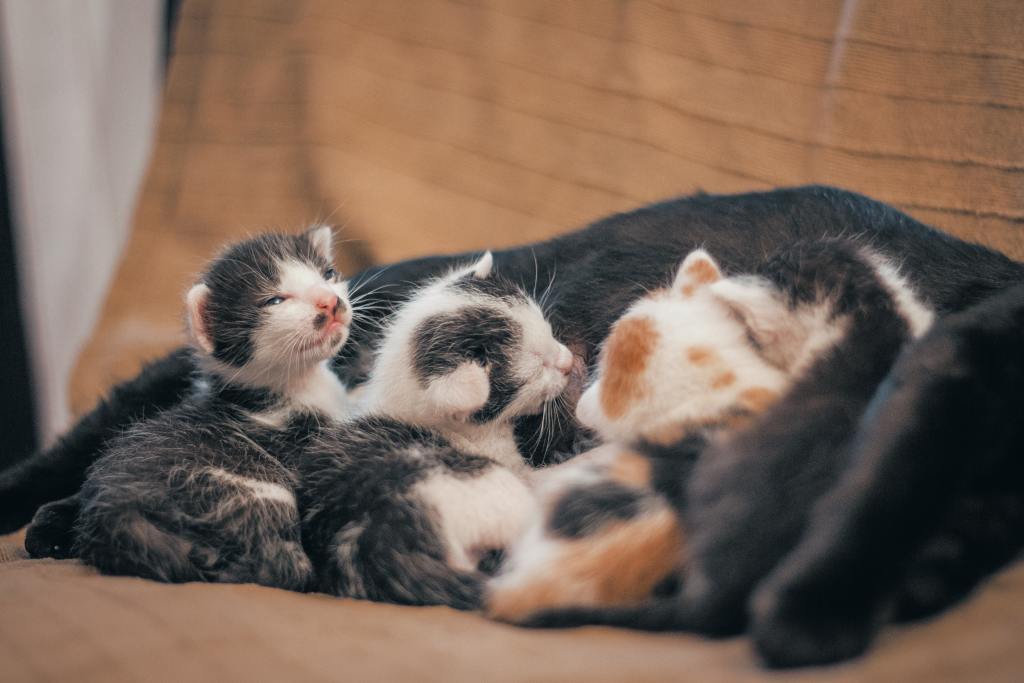
Cats are unique, but they all have at least one trait in common. Kittens are born with their eyes shut. They start opening them at different times, usually from 2 to 10 days after birth. By 2 weeks old, a kitten’s eyes should be completely open.
When kittens open their eyes, they can start paring visual information with all the sounds, touches, and smells they’ve been experiencing. When you bring your young kitten home at around 8 or 9 weeks, they’ll be ready to explore and stare deep into your eyes. Kittens’ vision will still develop over the next couple of months, as will something else: eye color.
As you gaze back at your kitten, you might notice changes. When do kittens’ eyes change color, and is there ever a cause for concern? Here’s what vets have to say.
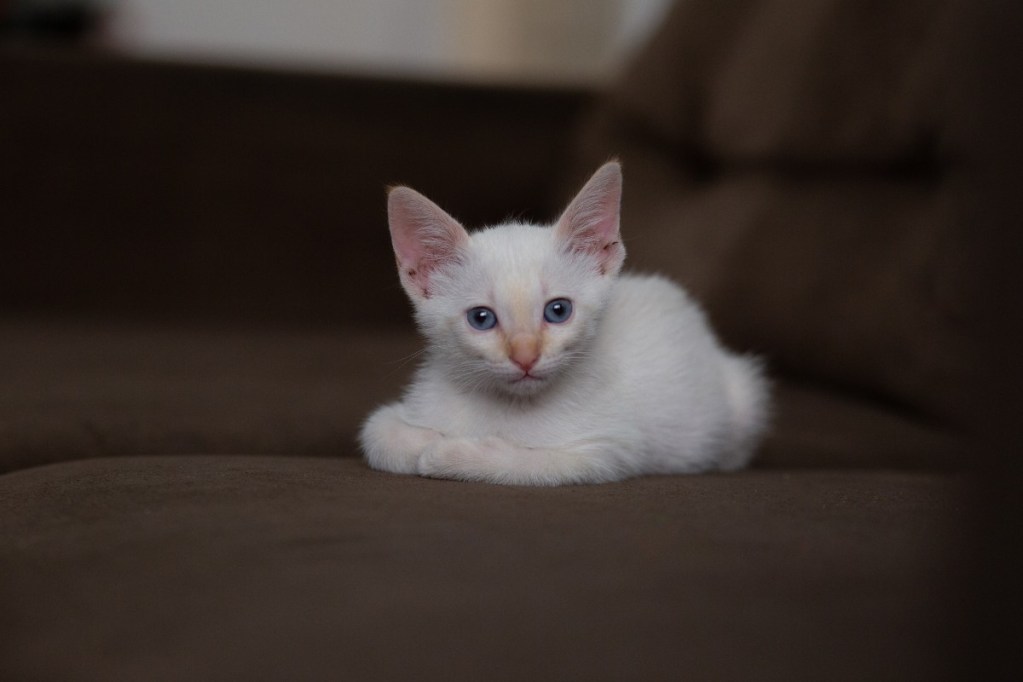
How long do kittens have blue eyes? What are the most common eye colors, and when will I see the changes?
Kittens are born with blue eyes, which is apparent when they open them. They may still be blue when you bring them home at 8 weeks old, but chances are they’ve already begun to transform into their adult color. A kitten’s eyes start to change between 3 and 8 weeks old. Common colors you may spot in your kitty’s eyes include:
- Brown
- Yellow
- Orange
- Green
- Amber
By 3 months old, your kitten’s eyes likely will reach their true color, though you may notice changes until their first birthday.

How can you tell what color a kitten’s eyes will be? Is it something only a vet can figure out?
It can be challenging for a typical pet parent to truly predict what color their kitten’s eyes will eventually be—you probably didn’t go to vet school, after all. However, simply looking at them and studying the current color will give you an idea.
The stroma and the epithelium, two layers of the iris, contain the pigmented cells that will ultimately transform your kitten’s eyes into a specific color. If there’s lots of pigment, expect orange or gold eyes. Kittens with less pigment will probably have green eyes, and those without pigment in each layer have blue eyes.
It’s likely not a cause for concern if your kitten always has blue eyes. Some breeds, like Siamese Cats, often keep their beautiful baby blues forever.
You won’t be able to tell what color a kitten’s eyes will be by looking at their biological mother or father because genetics has nothing to do with it. A cat’s fur color usually doesn’t either, but cats with white coats can be a notable exception. Some cats, particularly with white fur, have two different-colored eyes. Known scientifically as heterochromia iridis, it tends to occur when pigment doesn’t reach one eye (and thus keeps it blue) but does make its way to the other. This occurrence isn’t typically a concern either, but your vet can address any potential co-occurring conditions, such as the possibility the cat may have vision or hearing issues.
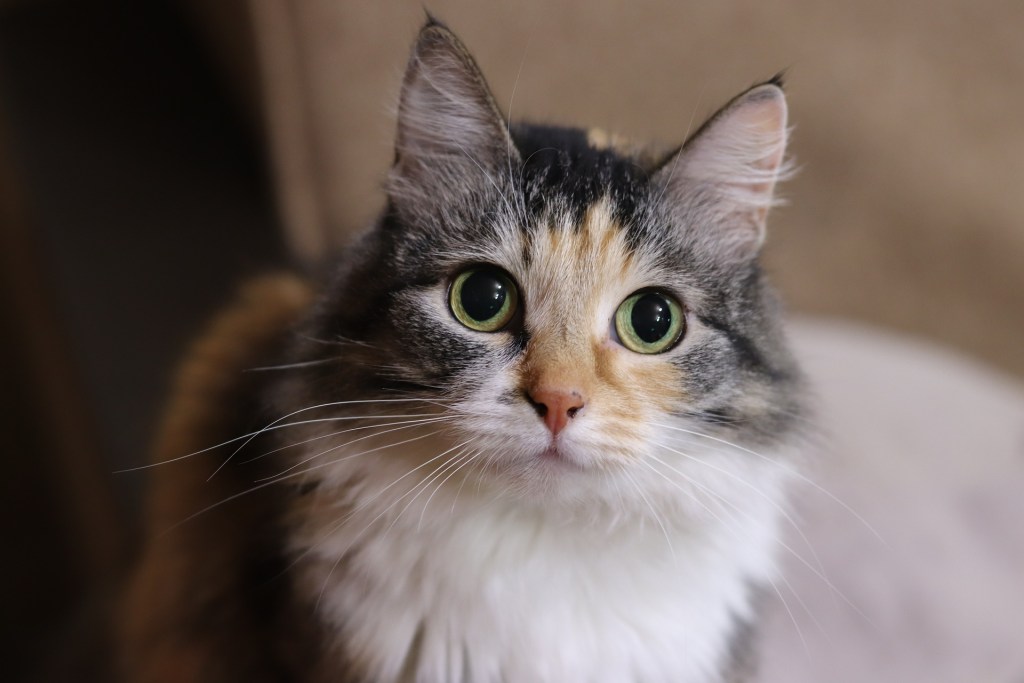
When should I be concerned about my kitten’s eye color?
It is normal for a kitten’s eyes to be all sorts of colors. It’s entirely possible you and your friend can adopt kittens from the same litter and notice they have different eye colors. Sometimes, though, a change in eye color can be a cause for concern.
Red or pink and swollen eyes are signs of conjunctivitis, an uncomfortable condition often caused by cat flu. It’s best to get this condition treated immediately. The longer you wait, the harder it is to help a kitten get back on the mend.
Once a kitten’s eyes have matured, they should not change colors again. If your adult cat’s eyes change, it’s best to get them checked out to ensure it’s not a sign of another health issue.
Kittens are born with blue eyes, which happens when layers in the iris don’t contain pigment. Some breeds, particularly Siamese cats, may keep their blue eyes into adulthood. More often than not, though, a kitten’s eyes will begin to change color once they’re around 3 weeks old. They usually stabilize around 2 months old, but some kittens don’t develop their permanent eye color until around their first birthday.
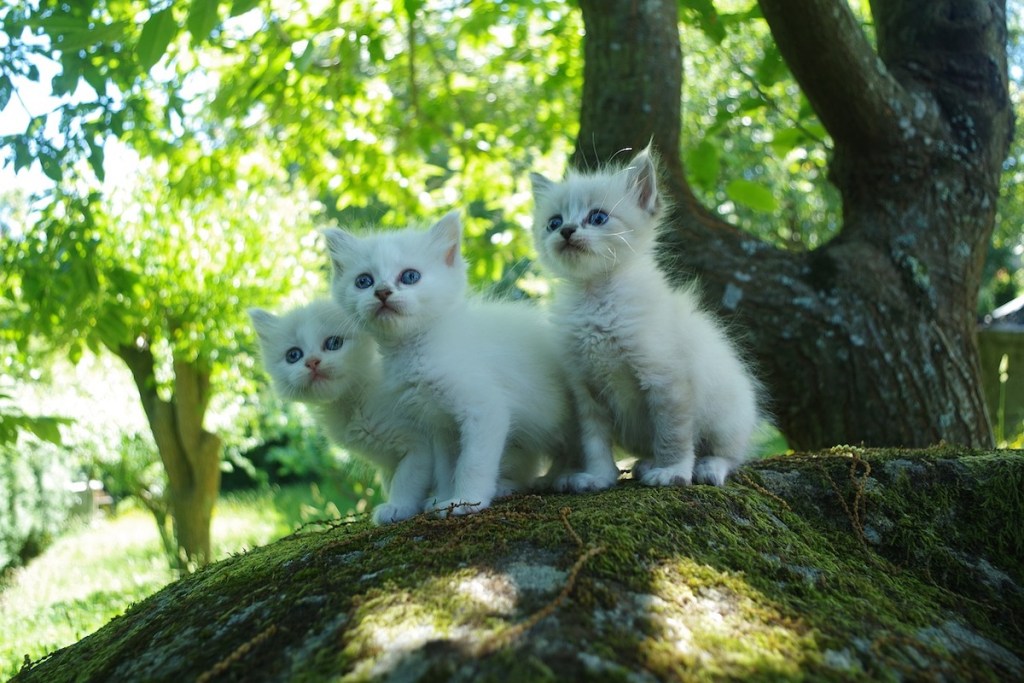
How old are kittens with blue eyes?
This answer isn’t straightforward. Brand-new kittens have blue eyes. At some point between 3 and 8 weeks old, most kittens’ eyes will begin changing color. This process is a normal part of development. Many cats have grown into their permanent eye color by 2 to 3 months of age, while others’ eyes will continue to change throughout the first year.
Some cats will maintain their blue eyes throughout their lives. As you can see, kitten — and cat — eye color milestones vary. For this reason, veterinarians don’t use eye color when estimating a feline’s age. Eye color may be a barometer of overall health, though. For example, red and swollen eyes could be a sign of infection.
Common cat eye colors include orange, green, yellow, and amber. Some cats will have two different-colored eyes. Though this occurrence usually isn’t a cause for concern, it’s always a good idea to talk to the vet. Whatever beautiful color your cat’s eyes end up being, be sure to speak with your vet if they change color after fully maturing or if you notice they are red and swollen.

